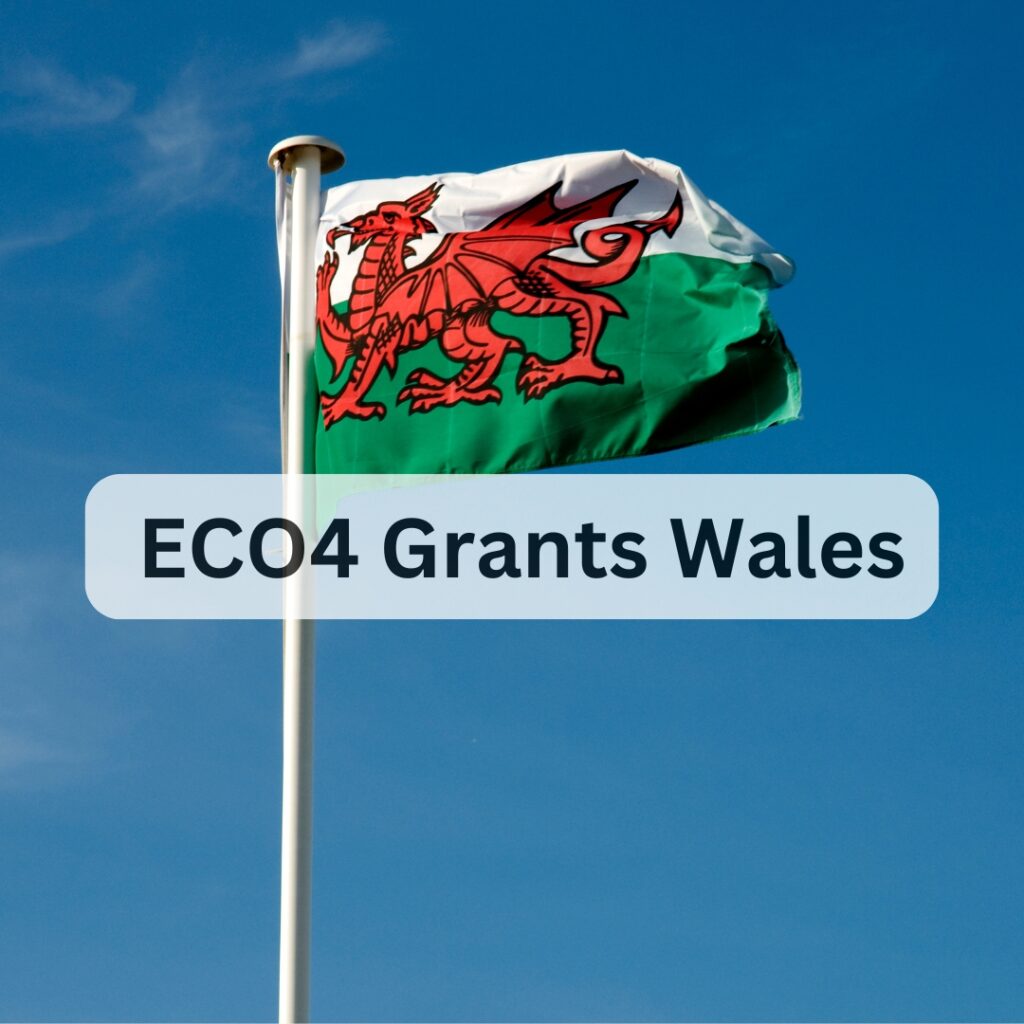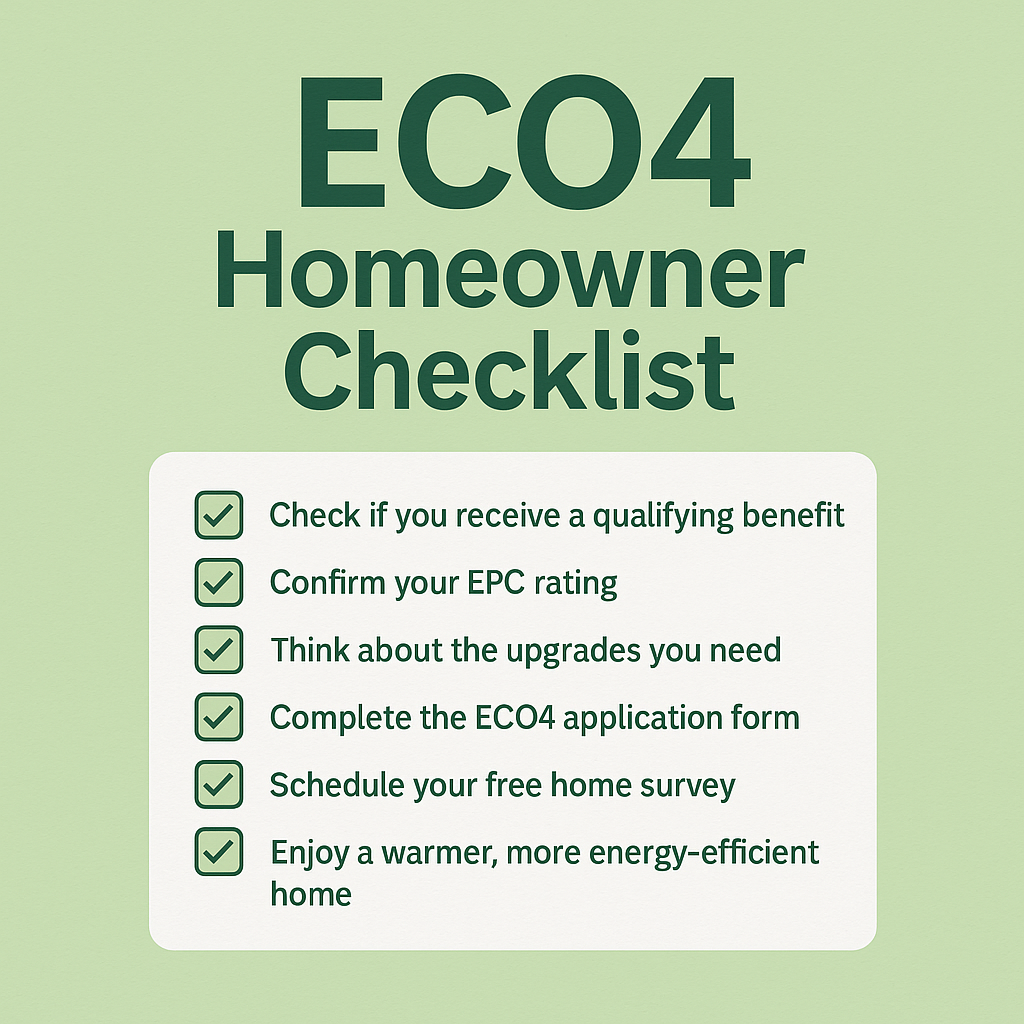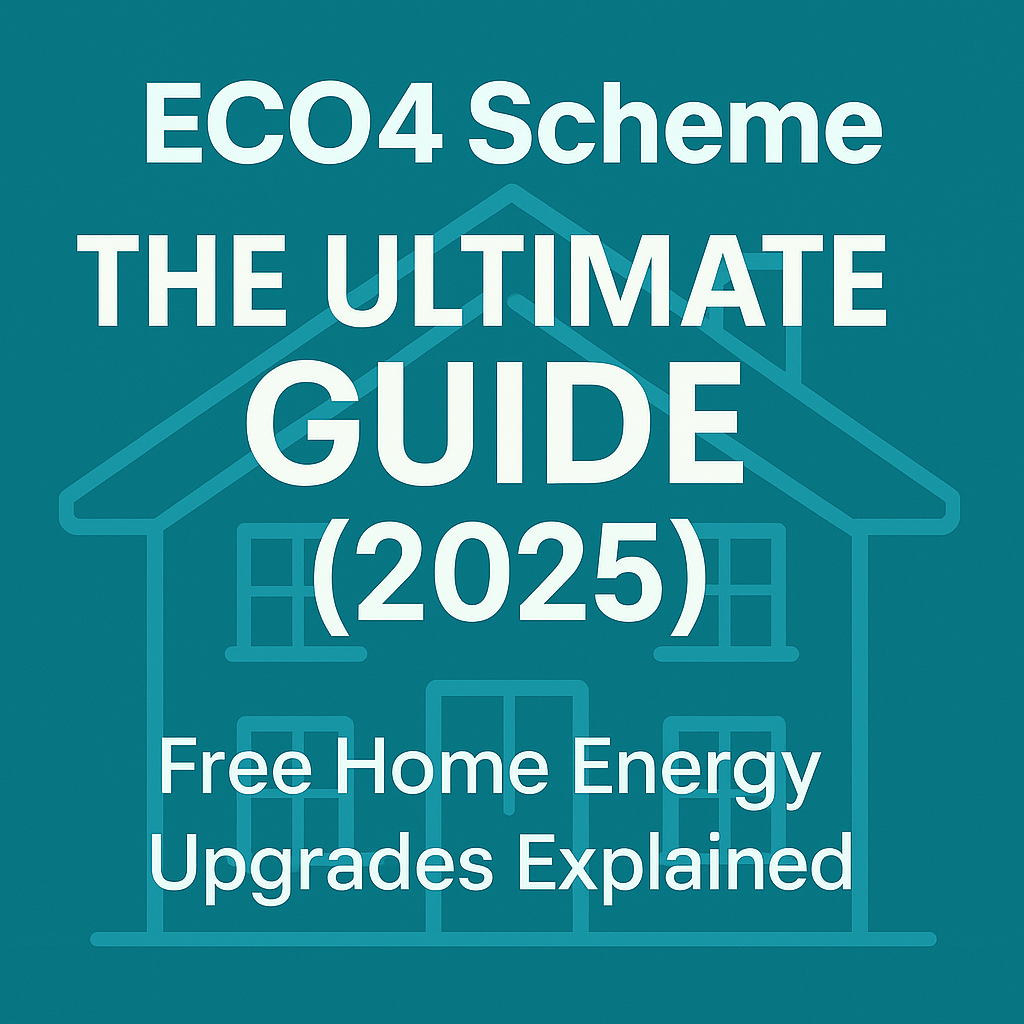The new phase of the Energy Company Obligation, known as ECO4, offers significant opportunities for homeowners in Wales to make their homes more energy-efficient. Homeowners and private renters with the appropriate permissions can potentially benefit from various energy-saving improvements. ECO4 grants in Wales are designed to help reduce carbon emissions and tackle fuel poverty by funding upgrades like central heating systems, insulation, and solar panels.

This initiative, running from April 2022 to March 2026, includes stringent eligibility criteria to ensure the funds reach those most in need. Eligible households can access a range of measures to improve their home’s energy efficiency. By focusing on high-impact improvements, ECO4 aims to continue the success of previous phases which have already transformed millions of homes across the UK.
It’s worth exploring whether you qualify for the ECO4 scheme, as it covers expenses that would otherwise be a significant financial burden. We will guide you through the eligibility requirements, application process, and the types of upgrades available to make your home more energy efficient and reduce your energy bills.
Key Takeaways
- ECO4 grants in Wales aim to improve home energy efficiency and reduce fuel poverty.
- Homeowners and private renters should check eligibility to benefit from ECO4 funding.
- ECO4 covers various energy-saving home improvements, including heating and insulation.
Overview of the ECO4 Scheme
The ECO4 scheme is designed to improve energy efficiency in homes across Wales, aiming to reduce carbon emissions and tackle fuel poverty. This overview covers the purpose, key features, and the transition from ECO3 to ECO4, providing a clear understanding of the scheme’s benefits.
Purpose and Goals
The primary goal of the ECO4 scheme is to make homes more energy-efficient. By achieving this, we reduce carbon emissions and help residents save on energy bills. It targets both homeowners and private tenants, with a specific focus on those facing fuel poverty.
Fuel poverty occurs when a household spends a significant portion of its income on heating. ECO4 aims to alleviate this by funding home improvements like insulation and new heating systems. These upgrades not only enhance comfort but also contribute to environmental sustainability.
Key Features of ECO4
Energy Efficiency Measures: ECO4 promotes various measures, including cavity wall insulation, loft insulation, solar panels and heating controls. These improvements significantly lower energy consumption and costs.
Eligibility Criteria: To qualify, applicants must be homeowners or private renters. This often requires the landlord’s agreement for any work to be performed. Additionally, recipients must meet specific criteria, such as receiving certain qualifying benefits.
Government Support: The scheme is government-funded, ensuring wide-ranging support and consistency in its execution. This funding has allowed over 3.1 million home improvements since the initiative began.
Integration of Renewable Energy: ECO4 also supports the integration of renewable energy technologies in homes. This shift is crucial for reducing reliance on non-renewable energy sources and helps meet Wales’ long-term environmental goals.
Transition from ECO3 to ECO4
The transition from ECO3 to ECO4 represents an escalation in efforts to combat fuel poverty and enhance energy efficiency. While ECO3 made significant strides, ECO4 introduces more comprehensive measures and broader eligibility criteria.
ECO4 launched in April of the previous year, building on the success of its predecessor. It focuses on more advanced energy efficiency solutions and incorporates greater flexibility in the types of home improvements covered.
This transition also includes improved funding mechanisms, allowing more households to benefit from the scheme. As a result, we expect ECO4 to make an even more substantial impact on reducing fuel poverty and cutting carbon emissions in Wales.
Learn more about the ECO4 scheme.
Eligibility for ECO4 Grants
To qualify for ECO4 grants, one must meet specific criteria related to benefits, vulnerability, and property type. This ensures that assistance is directed towards those who need it most.
Qualifying Benefits
Eligibility for ECO4 Grants includes being on certain benefits. These include Universal Credit, Pension Credit, Child Tax Credits, and Working Tax Credit. Individuals on Housing Benefit may also qualify. List of qualifying benefits:
- Universal Credit
- Pension Credit
- Child Tax Credits
- Working Tax Credit
- Housing Benefit
These benefits indicate financial need and support targeting low-income households. If a tenant is applicable, landlords must give permission for any installations or modifications needed.
Vulnerability Criteria
The scheme recognises the importance of assisting vulnerable households. This includes those with elderly residents (over the age of 60), families with young children, and individuals with certain health conditions.
Vulnerable groups often face unique energy challenges and may be allocated priority for receiving improvements. This ensures that we support those who are most likely to suffer from fuel poverty.
Property Eligibility
The property itself must meet specific criteria to be eligible. The home must be owner-occupied or privately rented with landlord approval. Types of allowable improvements include new central heating systems, insulation, and solar panels.
Eligible properties in Wales can claim ECO4 funding until 31 March 2026, as noted on the Warm Wales ECO Eligibility page. Energy efficiency measures are key in reducing both carbon emissions and energy bills for qualifying homes.
ECO4 Measures and Improvements
Our focus within the ECO4 scheme is to enhance energy efficiency in homes, addressing key areas such as insulation, heating systems, and renewable energy options. These measures aim to lower energy bills and improve comfort for residents.
Insulation Solutions
Insulation forms a crucial part of the ECO4 measures. Proper insulation reduces heat loss, leading to lower energy bills. We focus on various insulation types such as cavity wall insulation, solid wall insulation, and loft insulation.
Cavity wall insulation involves filling the gaps between walls, which significantly reduces heat transfer. Solid wall insulation, both internal and external, offers substantial energy savings for older homes with solid walls. Additionally, loft insulation helps retain heat within homes, reducing the need for excessive heating.
Heating System Upgrades
Upgrading heating systems is another significant aspect. The ECO4 scheme includes the installation of efficient boilers and heating systems. Modern boilers, including combi boilers, offer improved energy efficiency, which helps in reducing overall energy consumption.
We also implement advanced technologies like air source heat pumps. These pumps extract heat from outside air, even in colder temperatures, and are highly efficient compared to traditional heating systems. Replacing old and inefficient heating systems with these modern alternatives results in substantial cost savings and a smaller carbon footprint (savings depend on your existing fuel and efficiency).
Renewable Energy Options
Renewable energy options under the ECO4 scheme include solar panels and other sustainable energy solutions. Solar panels harness energy from the sun, providing a renewable source of electricity and reducing reliance on fossil fuels.
Installing solar panels can lead to significant reductions in electricity bills. Additionally, these systems often qualify for government incentives or rebates, making them a viable option for many homeowners. By integrating these renewable energy solutions, we aim to promote sustainability and energy independence.
In summary, the ECO4 measures are designed to improve home energy efficiency through various insulation solutions, heating system upgrades, and renewable energy options, providing both economic and environmental benefits.
Application and Funding Process
Understanding how to apply for ECO4 grants in Wales, the available funding, and the role of energy suppliers can help streamline the process for homeowners and private renters. Our guide provides key points on eligibility, support, and the responsibilities of energy suppliers in the ECO4 scheme.
Applying for ECO4
To apply for ECO4 funding, the first step is checking eligibility. Applicants must be homeowners or private renters, and receiving permission from landlords is necessary for renters. ECO4 targets households with a yearly income of £31,000 or under, those referred by doctors or energy providers, and individuals on qualifying benefits.
Steps to Apply:
- Eligibility Check: Use online tools to determine if you meet the criteria.
- Application Submission: Provide documentation proving eligibility.
- Approval and Schedule: Upon approval, schedule installations with an accredited contractor.
Key Requirement: Submission of accurate and complete documentation is critical for a successful application.
Funding and Support
ECO4 funding is provided as a grant, meaning eligible households do not need to repay the assistance received. The scheme supports various energy efficiency measures, such as solar energy systems, air source heat pumps, and home insulation.
Funding Details:
- Grant Type: Non-repayable
- Coverage: Full cost of approved installations
- Support: Professional advice from start to finish
Highlight: The support includes professional guidance throughout the application and installation process, which ensures that all steps are correctly followed.
Energy Suppliers and ECO4
Energy suppliers play a vital role in the ECO4 scheme. The “Big Six” energy companies in the UK are responsible for funding the grant, ensuring it does not rely on government budgets.
Energy Suppliers’ Role:
- Fund Management: The “Big Six” manage and allocate funding.
- Contracts: Suppliers contract accredited professionals to carry out installations.
- Compliance: Ensure installations meet regulatory standards.
Importance: Working with established energy suppliers guarantees that installations are carried out to a high standard, ensuring long-term benefits for households.
To learn more about funding opportunities and eligibility, visit ECO4 Grants Wales. For an easy qualification check and application, you can rely on resources like ECO4 Funding Eligibility Checker.
Impact and Expectations
The ECO4 grants in Wales bring significant advantages to households by making homes more energy-efficient. At the same time, they contribute positively to the environment and promise further improvements as the scheme progresses.
Benefits to Households
Households benefiting from ECO4 grants often see reductions in energy bills. By installing systems such as solar panels, air source heat pumps, and thorough home insulation, these upgrades lead to less reliance on traditional heating methods.
Enhanced heating systems and insulation can make homes more comfortable. This not only reduces energy usage but also tackles fuel poverty. For those living in rural areas, the scheme’s support helps reach properties that might otherwise miss out on these improvements.
Environmental Considerations
The impact on carbon emissions is significant. ECO4 promotes the integration of renewable energy technologies in homes, which directly contributes to lowering the carbon footprint of individual households.
By focusing on the replacement of non-renewable energy sources, the scheme plays a key role in moving towards a more sustainable energy model. The shift towards solar energy systems and heat pumps ensures that homes become part of the larger goal of reducing overall environmental impact. The decline in renewable energy generation from 33% in 2020 to 27% highlights the necessity for such measures.
Future Prospects of ECO4
ECO4’s design considers future sustainability and the evolving needs of energy efficiency. The scheme provides score uplifts in rural areas to ensure harder-to-reach areas receive the interventions they need. The government consultations on ECO4 aim to fine-tune its approach to maximise its positive impact.
We anticipate that ongoing adjustments and enhancements to the programme will continue delivering benefits, focusing on the integration of new technologies and increased funding. By doing so, ECO4 is poised to keep contributing to Wales’ long-term environmental targets and ensuring more homes achieve greater energy efficiency.
Stakeholder Roles and Responsibilities
In the implementation of the ECO4 scheme in Wales, various stakeholders play pivotal roles. Energy companies, local authorities, and household participants each have unique responsibilities that ensure the scheme’s success in reducing fuel poverty and enhancing energy efficiency.
Energy Companies’ Obligations
Energy suppliers such as British Gas, EON, and EDF have critical duties under ECO4. They are required to fund and facilitate the delivery of energy efficiency measures. This can include installing renewable energy systems like solar panels and heat pumps. Their goal is to cut down carbon emissions and help lower energy bills for households.
These companies must work closely with certified installers to execute projects. Compliance and adherence to the set regulations are strictly monitored by Ofgem, ensuring projects meet quality standards and are completed efficiently. The funding provided by these companies is pivotal in achieving the overall objectives of the ECO4 scheme.
Role of Local Authorities
Local authorities in Wales, including councils, are responsible for identifying eligible households for the ECO4 scheme. They ensure that the assistance reaches those in genuine need, particularly low-income families and those living in energy-inefficient homes.
Authorities collaborate with energy suppliers and other relevant stakeholders to streamline the implementation process. They also play a key role in monitoring the progress, gathering data, and providing feedback to ensure continuous improvement. By doing so, local councils contribute significantly to minimizing fuel poverty and promoting sustainable energy solutions within their communities.
Homeowners and Tenants Participation
Homeowners and private tenants are essential participants in the ECO4 scheme. Their primary role is to engage with offered energy efficiency improvements. This involvement can include allowing access for installations and cooperating with the installers sent by the energy suppliers.
For the scheme to be effective, participants need to follow through with recommended changes such as upgrading insulation, heating systems, and integrating renewable energy technologies. Active participation from these households not only improves personal energy savings but also contributes to a broader impact on national energy efficiency and carbon reduction targets. Landlords must also support these efforts, ensuring rental properties are up to the required energy efficiency standards.
Regulation and Compliance
The regulation and compliance of ECO4 grants in Wales are critical to ensure the programme’s integrity, efficiency, and effectiveness. We will examine the roles and responsibilities of key entities, the legal framework underpinning the scheme, and the processes for monitoring and audit.
Ofgem’s Role in ECO4
Ofgem, the Office of Gas and Electricity Markets, is the regulator responsible for overseeing the ECO4 scheme. Their primary role is to ensure that the scheme operates efficiently and in accordance with established guidelines. They oversee energy providers’ adherence to ECO4 requirements, ensuring that installations meet the necessary standards.
Ofgem also handles compliance reporting and enforcement actions for any breaches of protocol. They conduct regular checks and audits, which are vital for maintaining the scheme’s credibility. Additionally, Ofgem provides guidance and support to stakeholders, helping them understand their responsibilities and the regulatory framework.
Legal Framework and Standards
The legal framework for ECO4 is established through various government legislations and consultations, such as the government consultation on the design of the scheme. The Energy Performance Certificate (EPC) plays a key role in determining eligibility and measuring improvements. EPCs assess the energy efficiency of a property, essential for ensuring homes achieve the required energy performance standards.
Legal compliance involves adhering to specified standards for installations, which include technical and safety requirements. Energy providers must follow these standards meticulously, or face potential penalties. This framework ensures the accountability of all parties involved in the ECO4 scheme.
Monitoring and Audit Processes
Monitoring and audit processes are crucial for the transparent and effective operation of the ECO4 scheme. Ofgem conducts regular audits of the energy providers to ensure compliance. These audits involve reviewing documentation, conducting site visits, and assessing the quality of installations.
Energy providers are required to maintain detailed records of their ECO4 activities, which are periodically reviewed by Ofgem. This helps in identifying any discrepancies or non-compliance issues early. The results of these audits are often published, promoting transparency and allowing for public scrutiny of the scheme. Regular monitoring ensures ongoing adherence to the required standards and facilitates continuous improvement in the implementation of ECO4.
Supporting Infrastructure
For the ECO4 grants scheme in Wales, critical supporting infrastructure components include contractor accreditation and training, quality assurance systems, and advice and awareness campaigns. These elements ensure the effective implementation and success of the energy efficiency measures under the scheme. Find out more about ECO4 grants here.
Contractor Accreditation and Training
Accrediting contractors and providing them with the necessary training is vital for the success of ECO4 grants. Qualified and well-trained professionals ensure high-quality work and adherence to standards. The UK government sets stringent certification processes that contractors must follow.
Training programmes often focus on new technology, installation techniques, and best practices. Accredited contractors must stay updated with regular refresher courses. This ensures they are knowledgeable about the latest developments in energy efficiency. Proper accreditation and training significantly reduce the risk of substandard work, which is essential for homeowner satisfaction and long-term energy savings.
Quality Assurance Systems
Quality assurance plays a crucial role in monitoring and maintaining the integrity of the ECO4 scheme. Ofgem, the Office of Gas and Electricity Markets, administers these systems in line with UK government oversight. Regular audits and inspections are part of the process, ensuring contractors meet required standards.
Key aspects of quality assurance include:
- Regular Inspections: Ensuring ongoing compliance.
- Performance Audits: Evaluating the effectiveness of installed measures.
- Feedback Systems: Collecting homeowner feedback to improve services.
These mechanisms help protect consumers and maintain high standards across all ECO4 projects, leading to better energy efficiency outcomes and reduced carbon emissions.
Advice and Awareness Campaigns
Advice and awareness campaigns are essential in educating the public about the benefits of the ECO4 grants and how to access these opportunities. We aim to provide clear, accessible information to homeowners and tenants, ensuring they understand eligibility criteria and application processes.
Campaigns also highlight the long-term benefits of energy efficiency measures, such as reduced energy bills and improved home comfort. Collaborating with local government bodies and community organisations enhances the reach and effectiveness of these campaigns.
Efforts often include digital resources, community workshops, and informational brochures. This multifaceted approach ensures that all potential beneficiaries are informed and encouraged to participate in the ECO4 scheme, ultimately contributing to its success in reducing fuel poverty and improving energy efficiency in Welsh homes.
Frequently Asked Questions
We aim to provide clear and concise information regarding the ECO4 grants available in Wales. This section will address common queries about eligibility, application processes, covered measures, and specific details for Powys residents.
What are the eligibility criteria for the ECO4 scheme in Wales?
To qualify for an ECO4 grant, either homeowners or private renters must reside in the property. Private renters will need their landlord’s consent. The scheme targets those in fuel poverty or on low incomes, aiming to improve energy efficiency and reduce carbon emissions.
How do I apply for an ECO4 grant in Wales?
Applications can be submitted through the Energy Saving Trust or local authorities. The process typically involves submitting proof of eligibility, such as income or benefit status, and including details about the property. Some organisations, like Warm Wales, offer assistance in navigating the application process.
Which energy-saving measures are covered under the ECO4 scheme in Wales?
The ECO4 scheme supports various energy-saving measures. These include installation of solar energy systems, air source heat pumps, and home insulation systems. The goal is to promote energy efficiency and integrate renewable energy technologies to reduce reliance on non-renewable sources.
Can I receive funding for window replacements under the ECO4 scheme in Wales?
Window replacements can be funded under the ECO4 scheme if they significantly improve the energy efficiency of the property. Eligibility for this specific measure will depend on the property’s current energy performance and the potential impact of the window upgrades.
Are there specific grants available for residents of Powys under the ECO4 scheme?
Yes, residents of Powys can benefit from additional funding made available by Powys County Council. Besides the standard measures covered by ECO4, there is supplementary support for items such as battery storage, energy-saving lights, and interest-free loans, as mentioned by Warm Wales.
What reviews are there on the implementation of the ECO4 scheme in Wales?
Reviews on the ECO4 scheme’s implementation highlight its impact on reducing fuel poverty and promoting renewable energy integration. The scheme has been positively received for its contributions to long-term environmental goals in Wales, despite some noted areas for improvement, as discussed on the Energy Advice Helpline.



